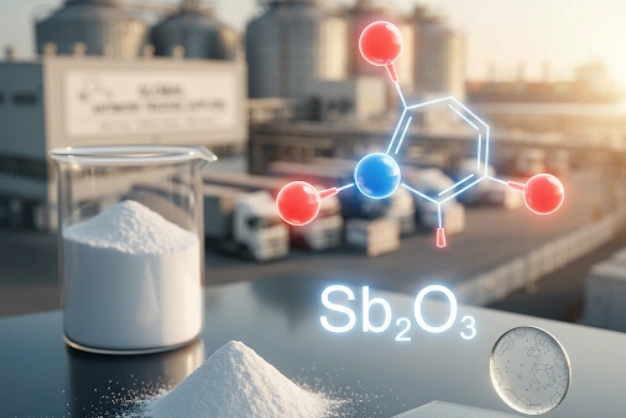TABLE OF CONTENTS
TABLE OF CONTENTS
Introduction
A silicone cord is a flexible, round profile made from high-quality silicone rubber. It is widely used for sealing, insulation, and gasketing in various industries. Depending on the use, it may also be called a silicone string, silicone rope, or silicone rubber cord.
Silicone cords are popular because they offer excellent resistance to heat, cold, weather, and chemicals. They stay flexible over a wide temperature range and don’t crack or degrade easily. These properties make them ideal for both industrial and commercial applications like food processing, electronics, automotive, and medical equipment.
Whether used for sealing oven doors or protecting wiring systems, silicone cords are trusted for their durability, safety, and performance.
How Silicone Cord is Made?
Silicone cords are produced using an extrusion process. Silicone material—either solid or sponge—is pushed through a shaped die to create a continuous cord. The extruded shape is then cured with heat to achieve its final strength and flexibility.
Solid vs. Sponge Silicone Grades
- Solid silicone cord: Dense, firm, and ideal for high-pressure sealing
- Sponge silicone cord: Soft, compressible, and better for low-pressure environments or vibration absorption
Available Forms
Silicone cords are available in different forms to suit various needs:
- Standard round silicone cords
- Thin silicone strings
- Thick silicone ropes
- Hollow or solid profiles, based on application
All forms—whether you call them silicone cords, silicone strings, or silicone ropes—offer dependable sealing and insulation for tough industrial conditions.
Key Properties of Silicone Cord
Silicone rubber cords are known for their excellent performance in tough environments. Whether used as a silicone rope for industrial sealing or as a small-profile string for delicate applications, these cords offer reliable protection and flexibility.
Main Properties of Silicone Rubber Cord
| Property | Silicone Rubber Cord | Regular Rubber Cord |
|---|---|---|
| Temperature Resistance | Works from -60°C to +230°C; some grades up to 300°C | Limited to around -30°C to +100°C |
| UV & Ozone Resistance | Excellent; does not crack or degrade in sunlight or ozone | Poor; cracks and weakens over time |
| Weather Resistance | Stable in outdoor use, rain, snow, and humidity | Degrades with exposure |
| Chemical Resistance | Withstands oils, acids, and many industrial chemicals | Limited chemical resistance |
| Water Resistance | Water-tight and moisture-proof | May absorb moisture or swell |
| Flexibility & Durability | Stays flexible long-term, does not harden or crack | Can become brittle with age |
| Food Grade Compliance | Available in FDA-approved grades for food and pharma use | Not all grades are food-safe |
Silicone rubber cords and silicone ropes last longer, perform better in extreme temperatures, and are safer in sensitive environments compared to standard rubber cords. This makes them ideal for high-demand industries like medical, food, automotive, and electronics.
Silicone Cord vs. Other Materials
When selecting sealing materials, many options are available—rubber, EPDM, PVC, and silicone. However, silicone rubber cords and silicone ropes stand out for their ability to perform in extreme and demanding environments.
Material Comparison Table
| Feature | Silicone Rubber Cord / Rope | Rubber | EPDM | PVC |
|---|---|---|---|---|
| Temperature Range | -60°C to +230°C (some up to 300°C) | -30°C to +100°C | -40°C to +120°C | 0°C to +60°C |
| UV & Ozone Resistance | Excellent – does not crack or fade | Poor – cracks over time | Good | Poor |
| Chemical Resistance | High – resists oils, solvents, acids | Moderate | Good (not for oils) | Limited |
| Flexibility Over Time | Stays flexible for years | Hardens with age | Moderate | Becomes brittle |
| Weather Resistance | Excellent in all climates | Low | Good | Weak |
| Food Grade Availability | Available (FDA-compliant) | Not common | Not suitable | Not suitable |
| Typical Lifespan | 10+ years depending on use | 2–5 years | 5–7 years | 1–3 years |
Why Choose Silicone
- Performs better in high heat, cold, and moisture
- Safer for food, medical, and outdoor use
- Offers longer service life and less maintenance
For harsh environments and long-term reliability, silicone rubber cords and silicone ropes are the top choice across industries.
Common Applications of Silicone Cords
Silicone cords are used across many industries because of their ability to handle heat, moisture, and chemicals. They are flexible, long-lasting, and available in custom sizes, making them a smart choice for sealing and insulation needs.
Automotive Seals and Gaskets
Silicone rubber cords are widely used in vehicles for door seals, engine gaskets, and wiring protection. They handle high engine temperatures and resist oil and weather damage.
Food Processing and Pharma Equipment
Food-grade silicone cords are used for sealing equipment in food and pharmaceutical plants. They do not react with food, are easy to clean, and meet FDA safety standards.
LED and Lighting Enclosures
Silicone cords are used in outdoor and industrial lighting fixtures to keep dust, water, and insects out. They stay flexible and effective even in hot or cold climates.
Aerospace and Marine Uses
In aircraft and ships, silicone cords provide airtight and watertight sealing. They resist saltwater, UV rays, and extreme temperatures, making them ideal for demanding conditions.
Industrial Ovens and Machinery
High-temperature silicone rubber cords are used in ovens, furnaces, and heavy machinery. They keep their shape and seal well even under constant heat.
From small equipment to large machines, silicone cords provide safe and long-term sealing in critical applications.
Types of Silicone Cord Products
Silicone cords are available in different types to match specific sealing needs. Choosing the right type depends on the application, temperature range, and pressure conditions.
Solid vs. Sponge Silicone Cord
- Solid silicone cords are firm, durable, and used where strong seals are needed.
- Sponge silicone cords are soft and compressible, ideal for low-pressure sealing or vibration control.
Round vs. Square Profile
- Round cords are the most common and work well in grooves and channels.
- Square cords offer more surface contact, useful in some industrial sealing tasks.
Custom Thickness and Colors
Silicone cords come in a wide range of diameters and thicknesses. Colors can be customized for identification or industry use—like red for high-temp, blue for food-grade, or clear for visibility.
High-Strength and Reinforced Cords
Reinforced options are available for demanding uses where extra strength and durability are needed, such as in automotive or aerospace settings.
At RawSource, we supply all types of silicone cords, including solid, sponge, round, square, and custom-engineered variations—ready in bulk and tailored to your specific requirements.
Buying Guide: How to Choose the Right Silicone Cord
Choosing the right silicone cord ensures proper sealing, long-term performance, and industry compliance. Here are key factors to consider before making a purchase.
Diameter and Tolerance
Always check the required diameter and tolerance level. A precise fit is important for effective sealing. Tighter tolerance is better for high-pressure or critical sealing areas.
Hardness (Durometer Rating)
Silicone cords are available in different hardness levels, measured in Shore A. Soft cords (30–40 Shore A) are flexible and compressible. Harder cords (60–80 Shore A) offer stronger seals and hold shape under pressure.
Color Coding for Industrial Use
Colors are often used to identify grades and applications:
- Blue: food-grade
- Red: high-temperature
- Black: general industrial use
- Transparent: cleanroom or cosmetic uses
Choosing the right color can help with quick identification and industry standards.
Compliance Requirements
If you are using silicone rubber cords or silicone strings in food, medical, or electronic applications, make sure they meet regulations like FDA, RoHS, or REACH. Certified cords ensure safety and avoid regulatory issues.
By matching these factors to your specific use case, you can choose the right silicone cord that performs reliably and lasts longer. At RawSource, we offer custom and compliant options in bulk to meet diverse needs.
Why Choose RawSource for Silicone Cord Supply?
RawSource is a trusted supplier of high-quality silicone cords in bulk. We offer a wide range of solid and sponge cords, including custom sizes, profiles, and colors to match your exact needs.
Our inventory is ready for quick dispatch, backed by strong global logistics that ensure fast and reliable shipping. Whether you need standard cords or special grades like FDA-approved or high-temperature silicone, we deliver with consistency and care.
We also provide technical support to help you choose the right silicone rubber cord or silicone string for your application.
Request a quote or contact our team today to discuss custom options or large-volume orders.
Contact Us
Questions or looking for a quote?



